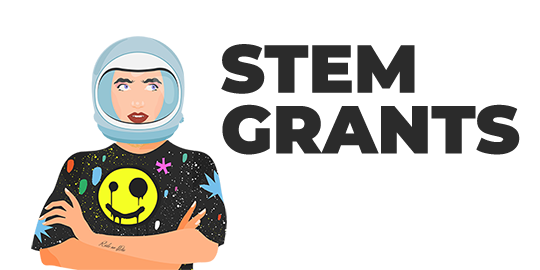Discovery Research PreK-12 (DRK 12)- Due: 11/14/2018
Classroom Research Grants (Pre-K – 6) – Due: 11/02/18
September 15, 2018Budding Botanist Grant $3,000 – DUE: 11-19-18
November 10, 2018$5,000,000 – The goal of the Discovery Research PreK-12 program (DRK-12) is to catalyze research and development of science, technology, engineering, mathematics and computer science (STEM) education innovations or approaches that can serve as models for use within the nation’s formal preK-12 STEM education (e.g., states, districts, schools, and teachers). The intent of the DRK-12 program is to: (1) catalyze new approaches to STEM learning, teaching, and assessment; (2) build knowledge about how to develop preK-12 students’ STEM knowledge and skills; and (3) provide multiple pathways and resources in a variety of learning environments to study the learning process itself. The DRK-12 program is committed to research and development that informs strategies to attract and retain a diverse population of students in STEM fields of study. The program encourages proposals from a range of institution types and categories including minority-serving institutions (e.g., HBCUs, Tribal Colleges, Hispanic Serving Institutions, Alaska Native-Serving Institutions, and Native Hawaiian-Serving Institutions), primarily undergraduate institutions and other organizations focused on preK-12 STEM Education.
The DRK-12 Program especially welcomes proposals that are consistent with the goal of developing STEM talent and workforce from all sectors and groups in our society (e.g., NSF INCLUDES). Collaborations are encouraged between DRK-12 proposals and existing NSF INCLUDES projects, provided the collaboration strengthens both projects. Projects in the DRK-12 program build on fundamental research in STEM education and prior research and development efforts that provide theoretical and empirical justification for proposed projects. School leaders, teachers, and students who participate in DRK-12 studies are expected to enhance their understanding and use of STEM content, practices, and skills. The DRK-12 program invites proposals that address immediate challenges that are facing PreK-12 STEM education, as well as those that anticipate radically different structures and functions of preK-12 teaching, learning, and assessment. The projects funded by the program should reflect the needs of the increasingly diverse population and national, state, or district priorities. Projects should contribute to the research base in STEM education by studying how students and teachers learn through well-articulated STEM education innovations with clear theories of action. DRK-12 projects are expected to contribute to both theory and to practice. Therefore, projects are expected to result in innovations or approaches that can be shared with and feasibly implemented by other organizations and research shared in peerreviewed research and practice publications.
Go to https://www.nsf.gov/pubs/2017/nsf17584/nsf17584.pdf for more information.
